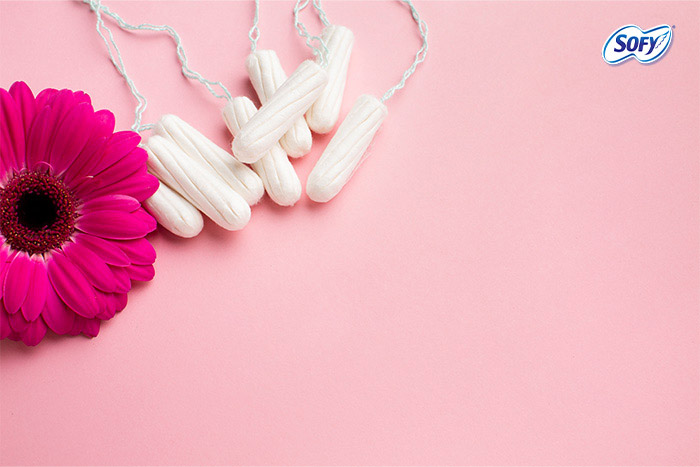Your periods can bring along a lot of challenges, from pain and cramps to discomfort, but maintaining menstrual vaginal hygiene is in your hands. So,how can you minimize vaginal infections and maintain vaginal health during those days? A little extra care, the best tampons, and the right vaginal hygiene habits can go a long way!
While tampons have become a popular choice for their convenience and freedom, with proper vaginal hygiene, they can help you stay fresh and confident. Let’s dive into some essential tips to maintain vaginal hygiene for optimal vaginal health when using tampons.
Choose the Right Tampon Absorbency Level
Using a tampon with the correct absorbency can help keep your vaginal clean during menstruation. You can opt for higher absorbency tampons when your flow is heavy and switch to the regular tampons for lighter flow. It’s because overusing super-absorbent tampons can cause dryness, which can also lead to vaginal itching and discomfort.
Change Tampons Regularly
Changing tampons every 4-6 hours is vital to avoid bacterial buildup, irritation, and unpleasant odors. Never leave a tampon in for over 8 hours, as it may increase the risk of Toxic Shock Syndrome (TSS).
Practice Proper Hand Hygiene
Inserting a tampon? First, wash your hands! Done with inserting a tampon? Again, you’re your hands! Washing your hands with soap and water or just sanitizing them before and after inserting menstrual tampons prevent the transfer of bacteria, helping you maintain your vaginal health.
Wash Vagina and Labia Properly
You should wash your vagina and labia twice a day, especially during periods. When on your menstrual cycle, you can be more prone to bacterial infections due to changing PH levels.
Proper Washing Technique
So, wash yourself using your hands in motion from the vagina to the anus before changing a new tampon.
Stay Comfortable with Breathable Fabrics
During your period, wearing breathable cotton underwear can help keep things dry and comfortable down there. Avoid using synthetic fabrics as they might trap moisture, leading to vaginal irritation.
Say ‘No’ to Soaps or Vaginal Hygiene Products
Soaps and vaginal hygiene products formulated for periods usually have chemicals that can disrupt your vagina’s natural flora, leading to infections and bacterial growth. Avoid douching! Just use warm water to wash yourself. You can use soap only to wash external parts.
All-in-All
Maintaining vaginal health while using tampons is all about choosing the right product, following proper hygiene practices, and listening to your body. With SOFY tampons, you can be assured of comfort, convenience, and protection, making your period a little easier to navigate.
FAQ’s
2. Can I use a tampon overnight while sleeping?
It's advisable to avoid wearing a tampon for more than 8 hours. If your sleep schedule exceeds this, consider switching to a sanitary pad for overnight protection. Extended use can increase the risk of TSS.
3. How do I choose the right tampon absorbency for my flow?
Using a tampon with the correct absorbency can help maintain vaginal hygiene during menstruation. Opt for higher absorbency tampons when your flow is heavy and switch to regular tampons for lighter flow. Overusing super-absorbent tampons can cause dryness, leading to vaginal itching and discomfort.
4. Is it safe to exercise while wearing a tampon?
Exercising during menstruation is generally safe and beneficial. However, using tampons during high-impact workouts may increase the risk of infections. Sweating can cause tampon strings to become damp, promoting bacterial growth and potentially leading to urinary tract or yeast infections. Alternatives like pads, menstrual cups, discs, or period underwear may be better suited, especially for extended outdoor activities.
5. How should I dispose of used tampons?
Wrap used tampons in toilet paper or a disposal bag and place them in a trash bin. Do not flush them down the toilet, as this can cause blockages and environmental harm.
6. Can using tampons cause infections?
Tampons are hygienic when used properly. Change them every 4–8 hours to avoid bacterial growth. Always wash your hands before and after insertion. Avoid scented tampons, which can sometimes irritate sensitive vaginal skin.
7. Do tampons affect virginity or the hymen?
Using a tampon does not impact virginity, which is a social or cultural concept, not a physical state. A tampon may stretch the hymen slightly, but it doesn’t “break” it. Virginity remains unaffected by tampon use.
8. Can I use the toilet while wearing a tampon?
Yes, you can urinate or have a bowel movement without removing your tampon. The tampon is placed in the vaginal canal, which is separate from the urethra and anus. Just ensure the string is kept clean and dry.
9. How do I remove a tampon that feels stuck?
Relax and gently pull the string in a slow, steady motion. If it's dry and hard to remove, it may be too absorbent for your flow. Try a lower absorbency next time. Never tug forcefully—calm, gentle movement is key.
10. Can I use tampons while using vaginal medications?
Tampons may interfere with the absorption of vaginal medications like creams or suppositories. It's advisable to consult with a healthcare professional before using tampons while undergoing such treatments.

